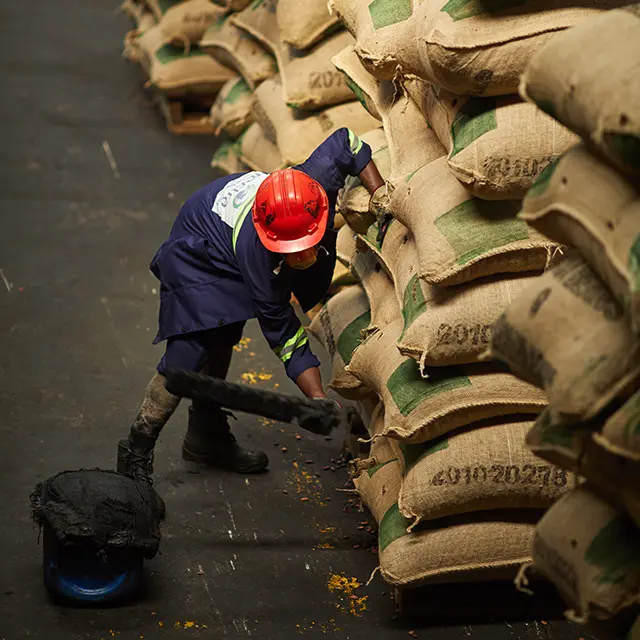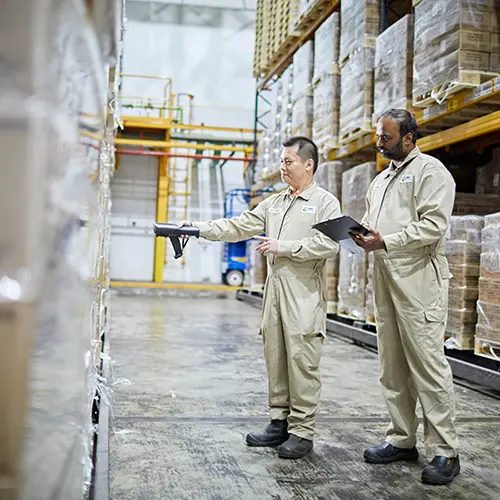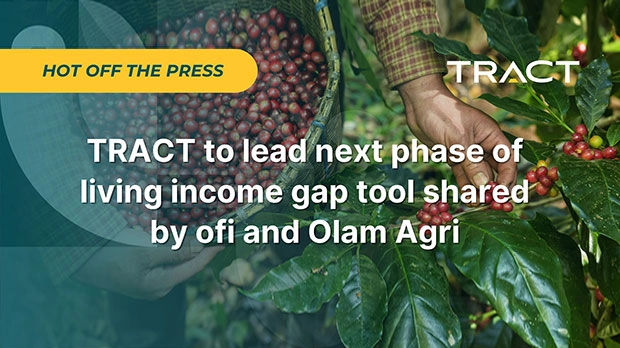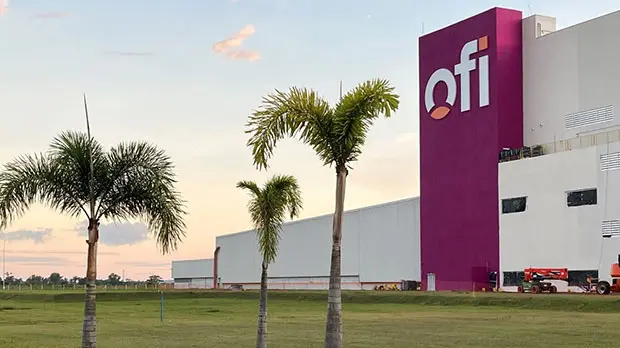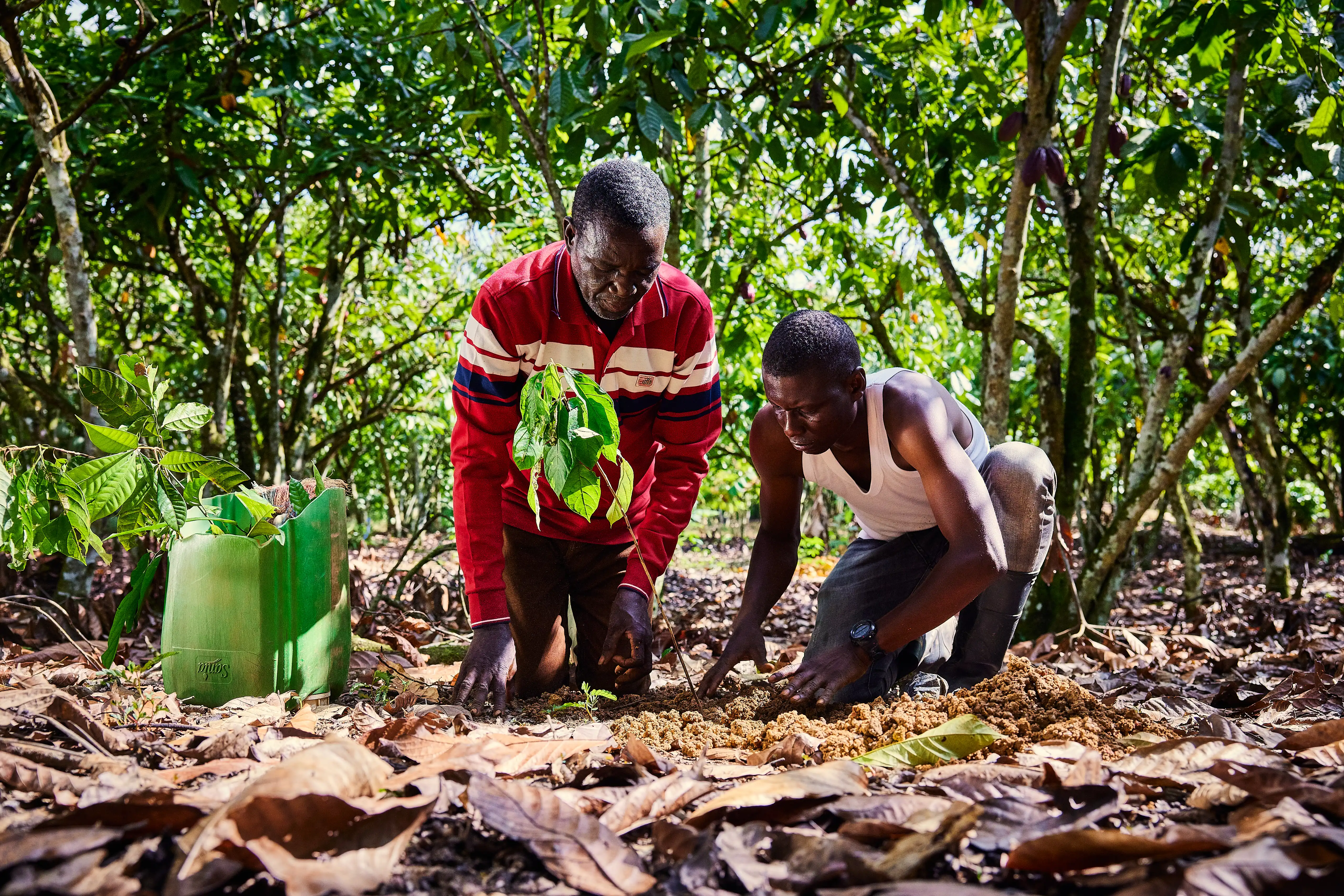Supply Chain Coverage
We help prevent disruption for retailers with supply chain control and enable them to appeal to eco-conscious consumers as we have the people and programs in place to offer traceability and sustainability.
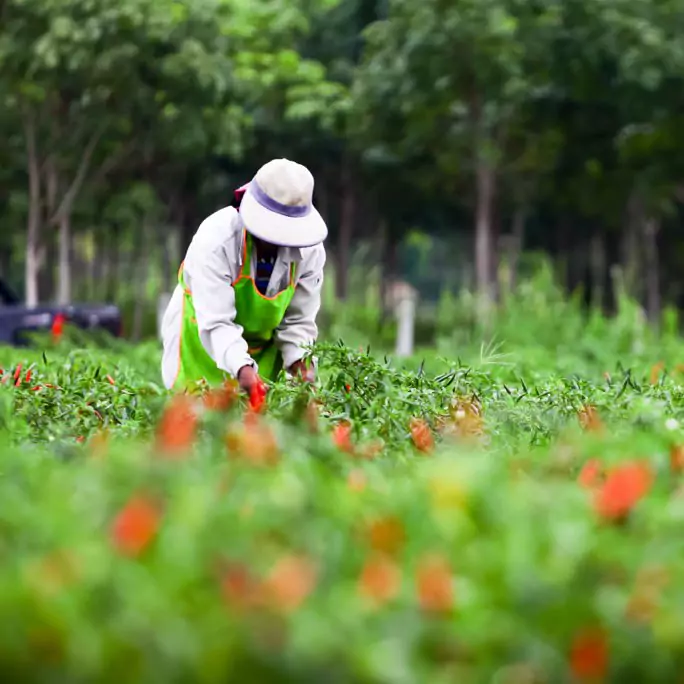
We invest in integration across the supply chain for consistent high-quality supply.
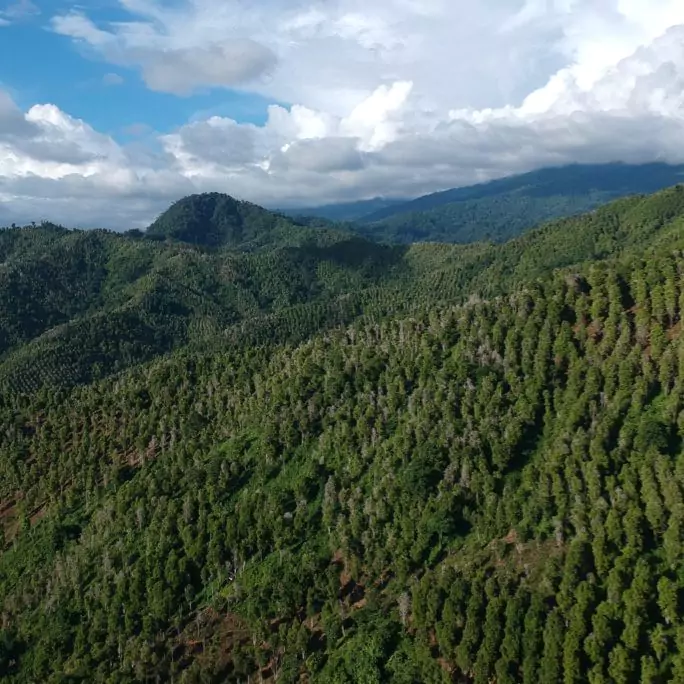
AtSource gives you end-to-end traceability with ESG metrics that matter.
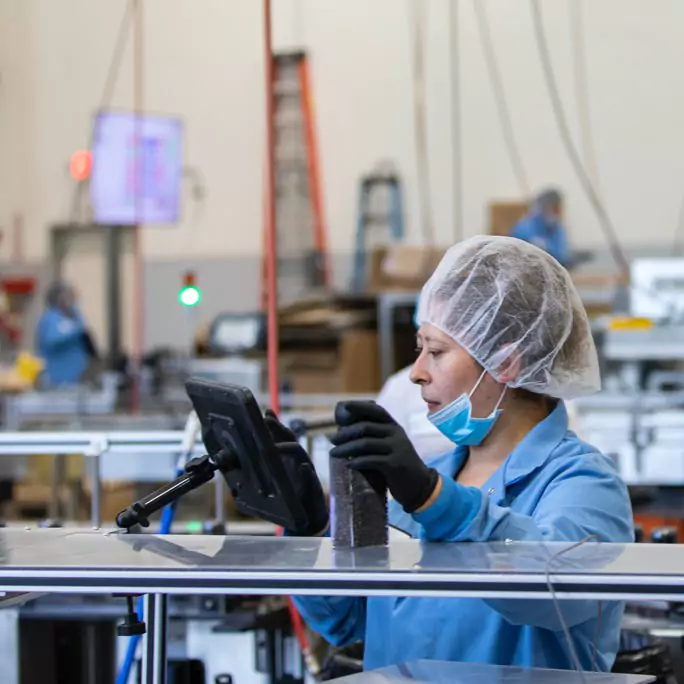
Strict quality and food safety standards in line with industry norms, across our supply chains. Pre-harvest procedures and protocols and post-harvest care.
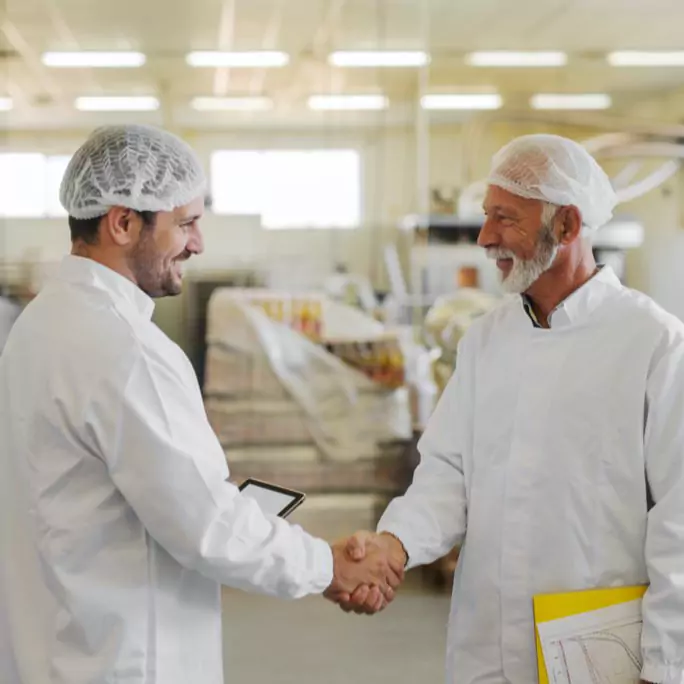
We are constantly tracking current health trends and consumer behaviors to help you create new products with natural ingredients.
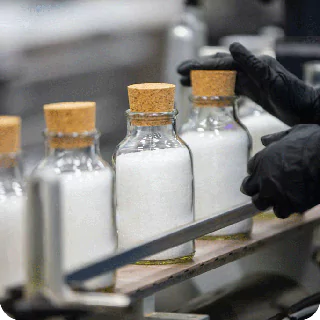
ofi gives you more transparency and consistent quality for a real and complete story to enrich your brand.
In agriculture, you learn to expect the unexpected. Thanks to our global presence and diversified sourcing, we can always adapt so disruption to your supply is minimized.
Farming can be unpredictable. A harvest might be lower than anticipated. Prices can drop or climb dramatically due to over- or undersupply. But, thanks to being spread across the world and sourcing ingredients from multiple origins, at ofi we can manage these risks. Which means you get reliable supply.
Our diversified global presence also helps to insulate us from supply shocks that may disrupt the production of a particular crop in a particular location in any particular year. It allows us to offer certainty of supply and provide the requisite food safety and quality assurance to our customers through adaptive solutions.
This is supported by our team of risk experts who have deep understanding of agricultural commodities and financial instruments trading to help manage the price changes and volatility that can create a difficult operating environment for producers and supply chain participants. We focus on building long-term partnerships with our customers and offering tailored solutions.
Consumers increasingly want reassurance about where their ingredients come from. Thanks to ofi’s superior traceability, you can give them exactly that.
Providing traceability for agricultural raw materials can be challenging given the complex and fragmented nature of many ingredient supply chains, because many crops tend to be grown by small-scale farmers who sell to an intermediary, who may then sell on to another intermediary, mixing sacks from different sources along the way. With the aim of reducing complexity in our supply chains, we make every effort to work directly with farmers, organising buying stations and local cooperatives.
This way of working not only provides us with the data we need to trace our supply back to the farmer groups we work with, but also provides opportunities to create positive impact by implementing sustainability programmes with customer, government, not for profit and development finance institution partners. With traceability, we can also reduce social and environmental risks such as deforestation and human rights abuses.
We also work closely with large-scale growers such as in California for our onions and garlic. Here, we have long-standing relationships with multi-generational farmers passionate about their crops and stewardship of their land. We provide them with proprietary world-class seeds and our ag operations teams and crop supervisors help support production, harvesting and logistics. Of course, with our own farms and estates such as almonds, black pepper and dairy farms, we offer full traceability and absolute control.
Action includes:
Ensuring all suppliers sign the Supplier Code – which also applies to their suppliers
Training farmers through our sustainability programmes
Providing advice and guidance through our digital applications
ofi’s unique technologies play a vital role in improving traceability:
Olam Direct: the app that lets farmers do business directly with ofi
Olam Farmer Information System (OFIS): putting isolated smallholder farmers on the digital map.
AtSource: our sustainability insights platform which gives you more supply chain transparency than ever before
You expect consistent functionality of ingredients. That’s why we have our own people on the ground at every stage of the supply chain.
Getting better performance from food ingredients starts with the best seeds and seedlings. This is an ongoing mission for our plant scientists and agronomists in their support to farmers. One of our seeds, developed by the Spices team, produces onions with more dry matter—boosting yields and reducing the amount of water, fertiliser and pesticide needed per acre. A great example of the power of plant science.
In our smallholder farmer networks, our sustainability teams provide training on how to get the best quality crops with the lowest environmental impact. For example, with careful use of fertilisers and pesticides, replacing synthetic chemicals with natural alternatives wherever possible.
In addition, our own custom developed planting and harvesting equipment has shown significant reductions in our carbon footprint. We also provide training on how to protect crops post-harvest, providing equipment such as drying mats and tables which help prevent contamination from the soil.
This combination of superior seed, expertise and reduced inputs provides our farmers with well-managed crop risk and yield. All made possible thanks to our global reach and teams working together at every step of the supply chain.
Making sure our ingredients are delivered to customers without contamination or adulteration is our top priority.
We achieve this by:
Operating highly integrated supply chains working with both large-scale growers and smallholders
Providing training and quality seeds to help farmers reduce the risk of contamination
Maintaining the highest standards of quality and food safety control at our processing plants
Continuously investing in safety, health, quality and sustainability
Putting in place food quality and safety systems including GMP and HACCP

